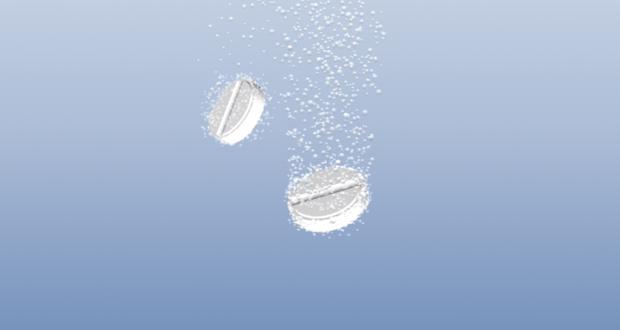According to a new study published online in PNAS, aspirin has a dual role in acting on pain. Not only does it prevent inflammation and pain but also hastens the end of inflammation.
According to the study, the drug kills cyclooxygenase, thus preventing production of the prostaglandins that cause inflammation and pain and also prompts the enzyme to generate another compound that hastens the end of inflammation, returning the affected cells to homeostatic health. Edward A. Dennis said that aspirin causes the cyclooxygenase to make a small amount of a related product called 15-HETE and during infection and inflammation, the 15-HETE can be converted by a second enzyme into lipoxin, which is known to help reverse inflammation and cause its resolution – a good thing.
The researchers found that macrophages contain the biochemical tools to not just initiate inflammation, a natural part of the immune response, but also to promote recovery from inflammation by releasing 15-HETE and converting it into lipoxin as the inflammation progresses.
Here are some other amazing facts about aspirin you should know:
1. It is the most widely used drug: Aspirin, chemically known as acetylsalicylic acid, is truly a boon to the medical world. This wonder drug was first brought to the pharmaceutical industry in the year 1899, when it was introduced for the treatment of rheumatic fever and gout. Since then it is the most extensively used therapeutic chemical and is still the first choice of treatment for minor pains and fever.
2. Most people take the drug without even realising it: Most people don’t realise that they are actually taking an aspirin because it is not only found as a single ingredient but is also present in combination with other prescribed and over-the-counter drugs. Most drugs containing aspirin have it labelled as ASA or spelled out as acetylsalicylic acid.
3. It is used for relieving more than 50 symptoms: The role of aspirin in treatment of various conditions has been studied. Aspirin is most commonly used for symptoms like heartburn, fever, arthritis, stomach ache, sleep disorders, migraine headaches and symptoms of common cold.
4. Aspirin could benefit 11 different cancers: Aspirin has a significant ability to inhibit the growth of cancer cells. A new aspirin drug showed to curb the growth of cancer cells including that of colon, pancreatic, lung, prostate, breast and leukemia.
Source: The health site



